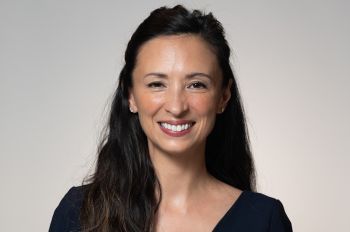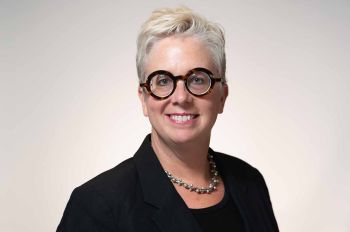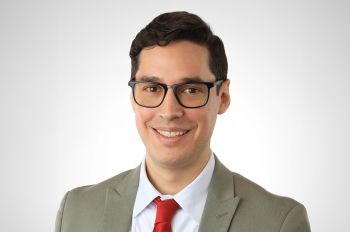"The Future of Violence" wins 2015 Chicago-Kent College of Law/Roy C. Palmer Civil Liberties Prize
The Future of Violence: Robots and Germs, Hackers and Drones—Confronting a New Age of Threat, by Benjamin Wittes of the Brookings Institution and Professor Gabriella Blum of Harvard Law School, has won the 2015 Chicago-Kent College of Law/Roy C. Palmer Civil Liberties Prize.
The book, published by Basic Books in 2015, explores how advances in technology give ordinary citizens and terrorists alike the tools to carry out devastating attacks—such as spreading deadly biological agents with a drone intended for hobbyists or launching cyberattacks from a laptop—and proposes solutions for how governments can respond. The authors contend that "security and liberty are mutually supportive, and that we must embrace one to ensure the other."
The Palmer Prize was established in 2007 by Chicago-Kent alumnus Roy C. Palmer and his wife, Susan M. Palmer, to honor an exemplary work of scholarship exploring the tension between civil liberties and national security in contemporary American society. Mr. Wittes and Professor Blum will present their work at Chicago-Kent in fall 2016.
Author Benjamin Wittes is a senior fellow in governance studies at the Brookings Institution and editor-in-chief of the Lawfare blog, which explores the intersection of law and national security. From 1997 to 2006, he wrote about legal affairs for the Washington Post's editorial page. Before that, he covered the Justice Department and federal regulatory agencies for the Legal Times. A 1990 graduate of Oberlin College, Mr. Wittes has written and edited several books about government and legal affairs.
Author Gabriella Blum is the Rita E. Hauser Professor of Human Rights and Humanitarian Law at Harvard Law School and faculty director of Harvard's Program on International Law and Armed Conflict. A graduate of Tel Aviv University and Harvard Law School, she formerly served in the Israeli Defense Forces, where she led the counter-terrorism desk at the International Law Department of the Military Advocate General's Corps. With this new award, Professor Blum becomes first person to win the Palmer Prize twice. In 2010, she and Professor Philip B. Heymann won the Palmer Prize for their book Laws, Outlaws, and Terrorists: Lessons from the War on Terrorism (Harvard University Press).
Benefactor Roy Palmer, a lawyer and real estate developer, is a 1962 honors graduate of Chicago-Kent and a former member of its board of overseers. Palmer is the recipient of the Chicago-Kent Alumni Association's 2012 Distinguished Service Award and was recently named by the law school as one of "125 Alumni of Distinction." He and his wife, Susan, are active in numerous civic, social and philanthropic organizations.
Previous prize recipients include:
- David D. Cole and Jules L. Lobel for Less Safe, Less Free: Why America Is Losing the War on Terror (The New Press)
- Harold H. Bruff for Bad Advice: The President's Lawyers in the War on Terrorism (University Press of Kansas)
- Scott M. Matheson, Jr., for Presidential Constitutionalism in Perilous Times (Harvard University Press)
- Gabriella Blum and Philip B. Heymann for Laws, Outlaws, and Terrorists: Lessons from the War on Terrorism (Harvard University Press)
- Laura A. Dickinson for Outsourcing War and Peace: Preserving Public Values in a World of Privatized Foreign Affairs (Yale University Press)
- Susan N. Herman for Taking Liberties: The War on Terror and the Erosion of American Democracy (Oxford University Press)
- Ganesh Sitaraman for The Counterinsurgent's Constitution: Law in the Age of Small Wars (Oxford University Press)
- Heidi Kitrosser for Reclaiming Accountability: Transparency, Executive Power, and the U.S. Constitution (University of Chicago Press)
Founded in 1888, Chicago-Kent College of Law is the law school of Illinois Institute of Technology, also known as Illinois Tech, a private, technology-focused, research university offering undergraduate and graduate degrees in engineering, science, architecture, business, design, human sciences, applied technology, and law.



